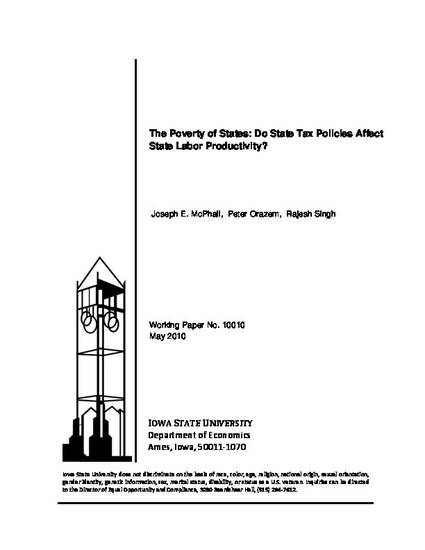
There are substantial differences in output per worker across states that have persisted over time. This study demonstrates that in the context of a neoclassical growth model, differences in marginal tax rates on income from capital investment, capital ownership, and consumption will lead to persistent differences in labor productivity across states. These theoretical predictions are supported, using data on state marginal tax rates and output per worker over the 1977-2008 sample period. Over that period, the mix of state tax policies has led to a reduction in labor productivity averaging almost 2.8% per year. The implied adverse effect of tax distortions on labor productivity across states is substantial, varying from -1.6% in Nevada to -3.9% in New York. On the other hand, government expenditure policies explain none of the variation in labor productivity across states or time. Results allow rankings of state tax structures by their adverse impacts on productivity and by their efficiency at raising revenue relative to lost productivity.
Available at: http://works.bepress.com/rajesh-singh/26/
